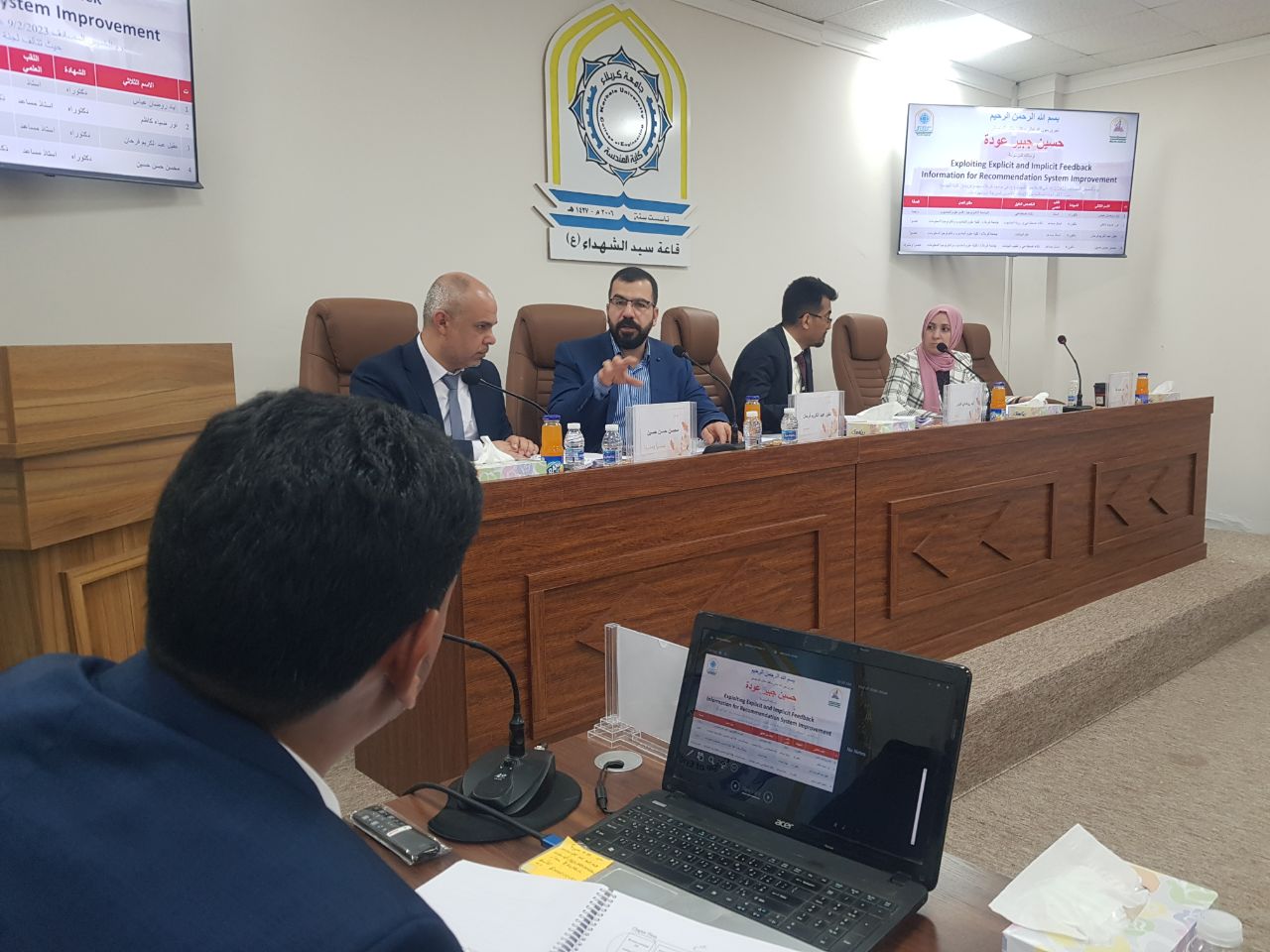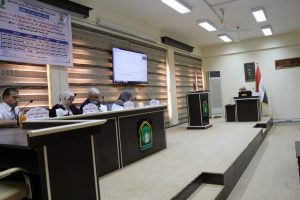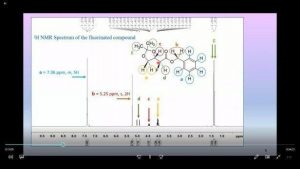Faculty of Computer Science and Information Technology /University of Kerbala has discussed the M.A. thesis which is entitled (Exploiting Explicit and Implicit Feedback Information for Recommendation System Improvement) which is presented by (Hussein Jubair Odeh).
The study aims at improving Recommendation Systems (RSs) by addressing problems such as (sparsity, start-cold, class imbalance), with large increase in data on the Internet, the need to develop recommendation systems capable of dealing with information overload has arisen, reducing the user’s effort and time in searching for the desired item.
The researcher exploits social trust information and textual reviews as implicit additional information in addition to explicit numerical assessments to obtain high-accuracy recommendations. Three models have been proposed, namely, the trust-based prediction model (TPM) and the two review-based recommendation models ( RRMs), all of which focused on improving the accuracy of recommendation systems based on explicit and implicit information.
The researcher conncludes a number of results, the most important of which is that the use of the weighted voting technique, along with exploitation of the feature of spreading trust relationships among users, helps greatly in alleviating the problem of sparsity, in addition to the effective role of text reviews in balancing the class imbalance problem. One of the most important conclusions that the researcher finds out is the improvement of the recommendation systems includes the exploitation of any additional information available that can be used implicitly in addition to the explicit assessments with the employment of appropriate techniques that will enhance the overall performance of the system.
































































